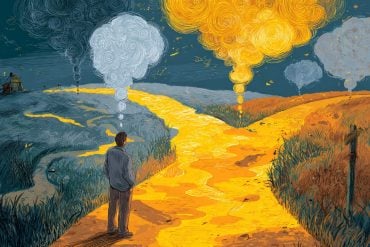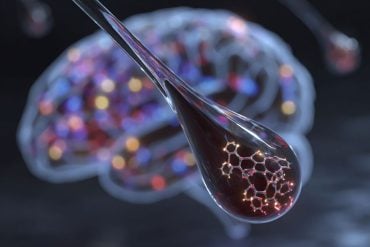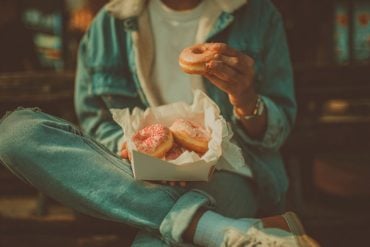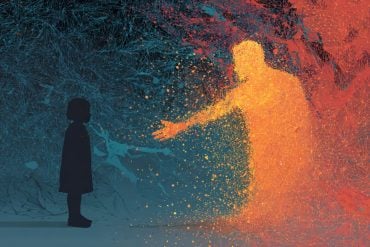Summary: A first-of-its-kind clinical trial shows that ketamine treatment for severe, treatment-resistant depression is significantly more effective when paired with psychotherapy and supportive environments. Patients who underwent this combined treatment reported a 30% drop in depression symptoms, with reduced anxiety and suicidal thoughts lasting at least eight weeks.
Those who experienced emotionally intense or mystical states during ketamine sessions showed the most improvement, suggesting these effects may be key to healing. The study introduces the “Montreal Model,” a patient-centered approach blending psychiatry and psychedelic therapy in real-world clinical settings.
Key Facts:
- Extended Impact: Benefits from ketamine paired with therapy lasted eight weeks, far beyond standard treatment.
- Mystical Correlation: Strong emotional or mystical experiences predicted better mental health outcomes.
- Montreal Model: A structured, therapeutic environment amplified ketamine’s antidepressant effects.
Source: McGill University
A first-of-its-kind clinical trial found that ketamine’s benefits for treating severe depression can be improved when combined with psychotherapy and supportive treatment environments.
Led by researchers at McGill University, the study suggests this approach can yield valuable therapeutic experiences that lead to longer-lasting relief than standard treatment.
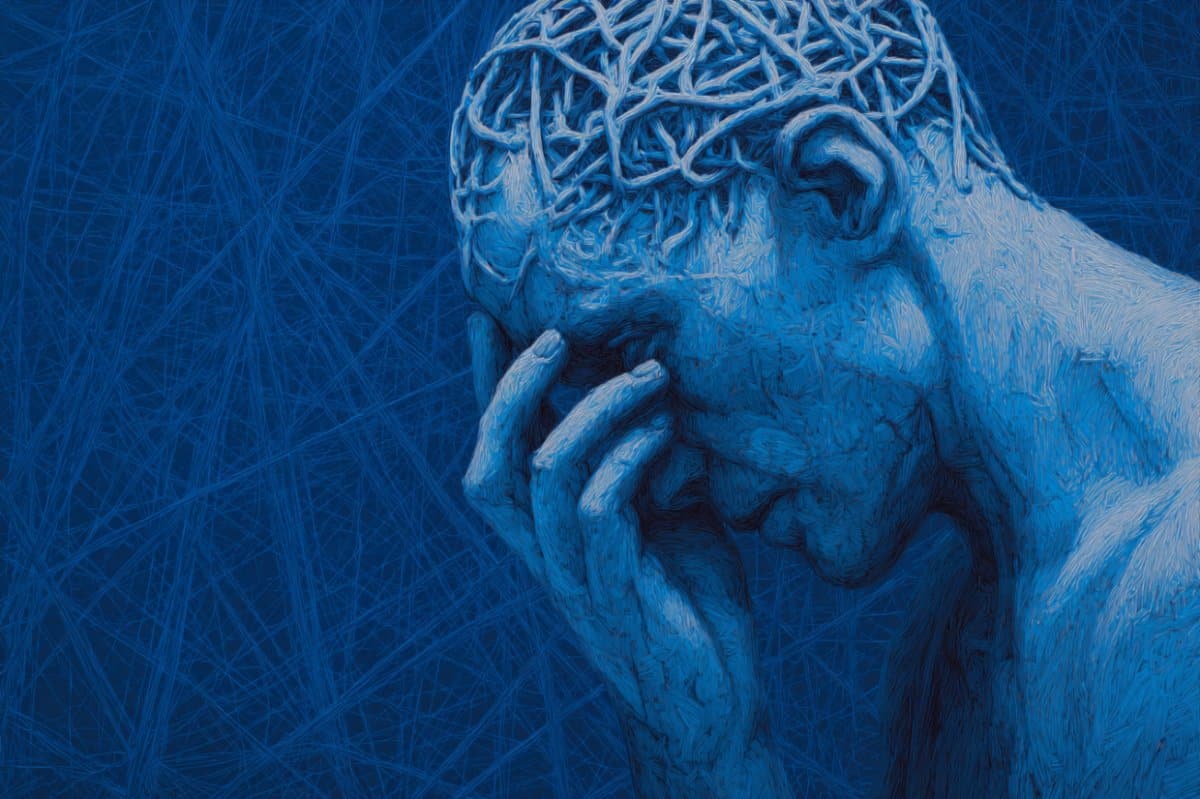
The study enrolled patients with chronic, treatment-resistant depression, most of which were experiencing suicidal thoughts and struggling with other mental health conditions.
Patients’ depression scores dropped by an average of about 30 per cent, and both suicidal thoughts and anxiety improved significantly by the end of the four-week intervention.
Unlike typical ketamine treatments, where benefits tend to fade within days, participants’ improvement lasted for at least eight weeks.
“Ketamine has been called the most exciting antidepressant innovation in decades but major questions remain about how it works,” said lead author Dr. Kyle Greenway, Assistant Professor in McGill’s Division of Social and Transcultural Psychiatry and a researcher at the Lady Davis Institute for Medical Research.
The study was co-led by Dr. Nicolas Garel, Assistant Professor at the University of Montreal and psychiatrist at the Centre hospitalier de l’Université de Montréal, who added: “As ketamine clinics emerge in hospitals and private retreats across Canada, there’s also an urgent need for more standardized treatment models.”
Unwanted side effect or source of healing?
Ketamine, an anesthetic medication increasingly used for its fast-acting antidepressant properties, can cause altered perceptions, a distorted sense of time, out-of-body sensations and many other mind-bending effects. In this study, participants who rated their sessions as particularly emotional or mystical saw the greatest improvements.
While often dismissed as side effects, these experiences may actually be central to the healing process, the researchers say.
“There’s been a lot of debate about whether the unusual experiences that ketamine induces are part of what makes it effective, similar to ‘classical’ psychedelic drugs like psilocybin,” Greenway said.
“The study is the first to strongly link certain aspects of ketamine experiences to its benefits in severe depression.”
Prioritizing patients’ experiences
In the randomized trial, 32 adults received ketamine infusions in rooms with soft lighting and plants, and either curated music or guided mindfulness, depending on group assignment. They also received weekly psychotherapy sessions.
“We know that how people feel in the room can shape how they respond to treatment,” said Greenway.
“Most of our patients have spent years in clinical settings. Creating a space that feels safe enough to allow for psychological exploration during ketamine treatments may be part of what made this approach so effective.”
The ‘Montreal Model’
The treatment approach used in the study – known as the Montreal Model – was developed by Dr. Greenway and Dr. Garel during their psychiatry residencies at McGill, under the supervision of Dr. Stephane Richard-Devantoy and a wide network of collaborators. Dr. Greenway and Dr. Garel both now direct ketamine-therapy programs in academic hospitals in Montreal.
The Montreal Model blends traditional psychiatry with strategies developed for psychedelic therapies. It is increasingly being applied in and private healthcare services in Canada and internationally.
“Our study shows that our approach not only yields more durable relief, but that it can be implemented safely and effectively in real-world, resource-lean public healthcare settings that care for patients who are much more complex than those typically enrolled in clinical studies,” said Greenway.
“It could bring some order and structure to a field that’s currently a bit of a Wild West.”
The research team recently hosted the first training session on the Montreal Model of ketamine therapy for 80 healthcare professionals from around the world at McGill’s Jewish General Hospital.
About the study
Funding: This study was funded by the Réseau québécois sur le suicide, les troubles de l’humeur et les troubles associés, and supported by the Jewish General Hospital Foundation.
About this psychopharmacology research news
Author: Keila DePape
Source: McGill University
Contact: Keila DePape – McGill University
Image: The image is credited to Neuroscience News
Original Research: Open access.
“The Music for Subanesthetic Infusions of Ketamine randomised clinical trial: ketamine as a psychedelic treatment for highly refractory depression” by Kyle Greenway et al. British Journal of Psychiatry
Abstract
The Music for Subanesthetic Infusions of Ketamine randomised clinical trial: ketamine as a psychedelic treatment for highly refractory depression
Background
Ketamine exerts potent but transient antidepressant effects in treatment-resistant depression (TRD). Combinations of ketamine and psychotherapy have attracted interest, but no trial has investigated a psychedelic model of ketamine–psychotherapy for TRD to our knowledge.
Aims
This secondary analysis of a randomised clinical trial (RCT) explores the therapeutic effects and experiential mechanisms of the Montreal Model of ketamine–psychotherapy for TRD, with or without music.
Method
A two-centre, single-blinded, RCT conducted in Montreal, Canada, between January 2021 and August 2022 (NCT04701866). Participants received ketamine–psychotherapy for TRD – six subanaesthetic infusions over 4 weeks and psychological support – with either music or matched non-music support during ketamine doses, as per random group assignments.
The primary therapeutic outcome was the Montgomery–Åsberg Depression Rating Scale, assessed by blinded raters. Psychedelic-like experiences, evaluated by the Mystical Experience Questionnaire and Emotional Breakthrough Inventory, and their session-by-session relationships with depression were explored with multilevel, time-lagged covariate models with autoregressive residuals.
Results
Thirty-two participants with severe and highly comorbid TRD, including high rates of personality disorder and suicidality, received 181 ketamine infusions. Therapeutic outcomes and psychedelic experiences did not differ between music (n = 15) and non-music (n = 17) interventions.
Both groups experienced significant reductions in clinician-rated and self-reported depression (d = 1.2 and d = 0.87, respectively; p < 0.001), anxiety (d = 0.8, p < 0.001) and suicidality (d = 0.4, p < 0.05) at 4 weeks, fully maintained at 8-week follow-up. Ketamine experiences were highly emotional and mystical. Converging analyses supported mystical-like ketamine experiences as mechanisms of its antidepressant effects.
Conclusions
This trial found large and notably sustained benefits of ketamine–psychotherapy for severe TRD, with or without music, and psychedelic experiences of comparable intensity to those observed with psilocybin. Mystical-like experiences may particularly contribute to ketamine’s immediate and persistent psychiatric benefits.



